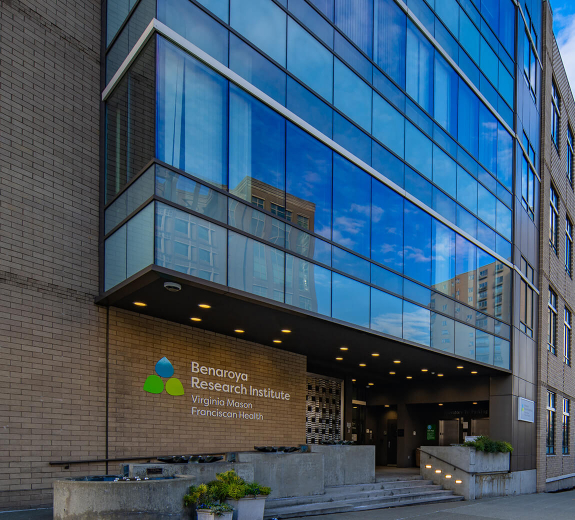In this first publication from the Sound Life Project, the investigators measured 174 different types of immune cells that circulate in the blood. They determined that 81 of these immune cell types did not change over time within an individual. When they compared the frequencies of the 81 immune cell types across the group of 100 healthy participants, they found that these individuals could be divided into 4 distinct groups, called immunotypes, based on the cell populations in their immune systems. To better understand the features that defined the 4 immunotypes, the Sound Life Project investigators also analyzed which genes were expressed and which proteins were produced in the immune cells of the participants.
“This tour-de-force study is among the first to deeply examine immune variation over time, advancing our understanding of the immune system and age in the context of health. We are very excited to see this type of work continue and grow!” said Dr. Claire Gustafson, an Assistant Investigator in Experimental Immunology at the Allen Institute.
One of the immunotypes was of particular interest as it was defined by increased inflammation as well as a heightened immune response to certain bacterial components. Together, these findings suggest that individuals with this immunotype may be poised to develop autoimmune or inflammatory diseases. “We plan to continue to monitor all the folks in this study to see how the immune system changes with time. We’re especially interested in individuals with this immunotype to determine if they have an increased propensity for developing autoimmune diseases or other immune health concerns. This finding reinforces the need for continued research into the distinct factors that may contribute to autoimmune disease development,” said Dr. Speake.
The results from the Sound Life Project highlight the importance of understanding the healthy immune system in order to predict, prevent, and cure diseases. “BRI will continue to investigate this rich dataset. There is a lot more data to explore and interesting questions to ask about the healthy immune system that the Sound Life Project can help answer,” commented Dr. Buckner. “We are excited for what’s to come as we further outline what defines a healthy immune system.”



